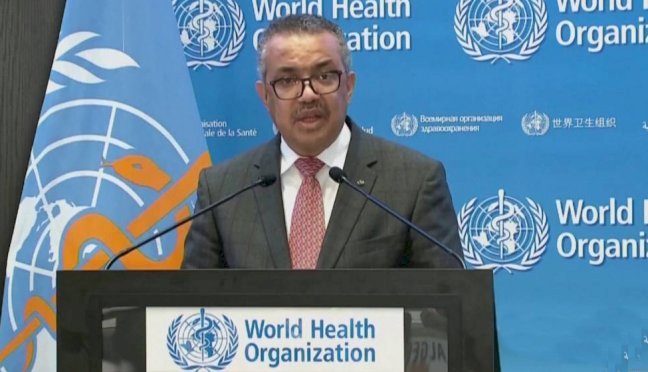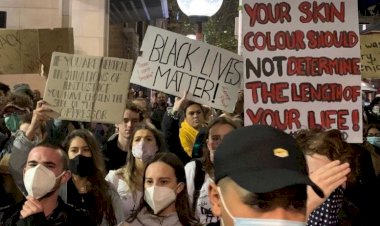WHO warns omicron poses 'very high' global risk as variant spreads

The global risk of the new omicron variant is “very high,” the World Health Organization (WHO) said on Monday.
“The overall global risk related to the new variant … is assessed as very high.”
Tedros Adhanom Ghebreyesus, WHO director-general, sounded the alarm at the start of an assembly of health ministers on Monday that is expected to launch negotiations on an international agreement on preventing future pandemics.
“The emergence of the highly mutated Omicron variant underlines just how perilous and precarious our situation is,” Tedros said.
The new variant was first detected in southern Africa last week, and has now been detected in countries around the world. Meanwhile, cases in Scotland and Portugal suggest that the variant may already be spreading outside the southern African region.
The heavily-mutated Omicron coronavirus variant is likely to spread internationally and poses a very high risk of infection surges that could have “severe consequences” in some places. More countries reported cases of the variant that has sparked worldwide concern that there is more pandemic suffering ahead.
The extent of the actual spread of the omicron variant around the world, however, still remains unclear as countries discover new cases each day. Despite the global alarm there is still little understanding about the variant and how virulent it may be.
No Omicron-linked deaths had yet been reported, though further research is needed to assess its potential to escape protection against immunity induced by vaccines and previous infections, it added on Monday.
“Omicron has an unprecedented number of spike mutations, some of which are concerning for their potential impact on the trajectory of the pandemic,” the body said in the report it tweeted out. “If another major surge of Covid-19 takes place driven by omicron, consequences may be severe.” WHO said
The WHO reiterated that, pending further advice, countries should use a “risk-based approach to adjust international travel measures in a timely manner”, while acknowledging that a rise in coronavirus cases might lead to higher morbidity and mortality rates.
In response to the spike in cases, an increasing number of nations are tightening their borders despite pleas for caution and outbursts of dismay from some.
Health experts and world leaders are urging populations to get vaccinated as soon as possible.
Global vaccination rates remain uneven, with citizens of some wealthy industrialized countries already being offered booster shots, while lack of access means other nations are struggling to inoculate their populations.
Low-income countries, most of them in Africa, have received just 0.6 percent of all vaccines, according to Tedros.




 mode1
mode1 






































